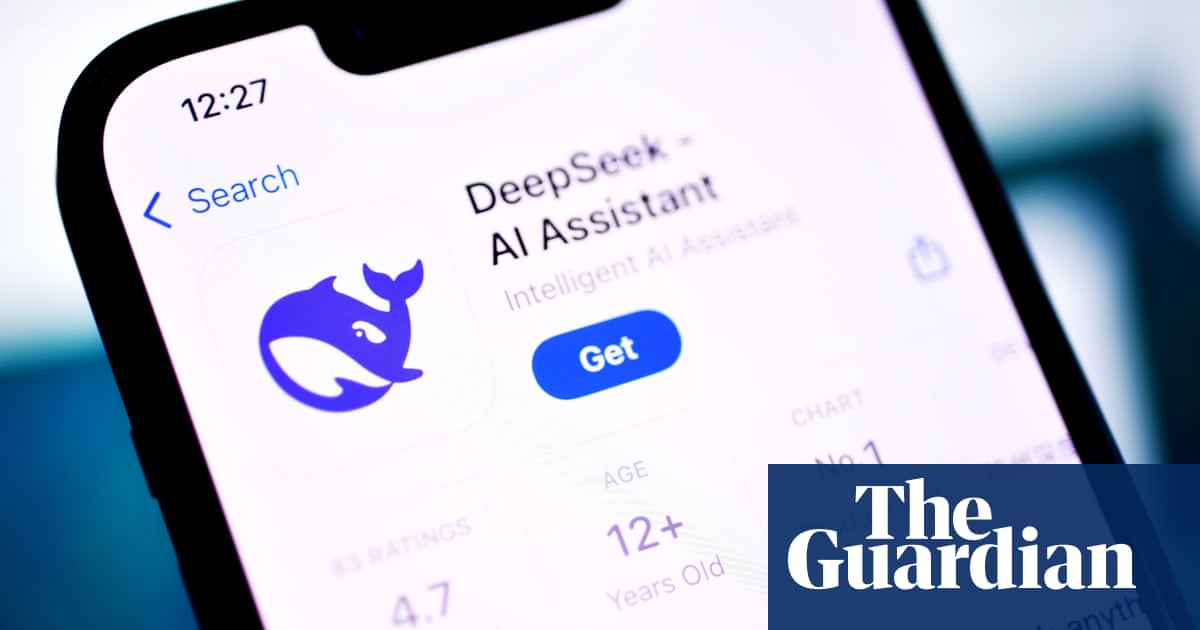 |
|
The emergence of DeepSeek, a low-cost Chinese artificial intelligence platform, has sent shockwaves through the tech world, prompting experts to urge caution regarding its widespread adoption. The platform's ability to achieve performance comparable to established players like ChatGPT, but at a fraction of the cost, has led to its rapid ascent as a top downloaded app in the UK and US. This success, however, is overshadowed by serious concerns regarding data security, the potential for misinformation, and the influence of the Chinese state. The low cost itself raises questions about DeepSeek's business model and how it can sustain its operations without compromising user data. The platform's open-source nature further complicates the issue, enabling software developers to adapt and utilize the technology for various purposes, including potentially malicious ones.
One of the most significant concerns is the potential for DeepSeek to be used to spread misinformation and propaganda. Experts like Dame Wendy Hall, a member of the UN's high-level advisory body on AI, highlight the inherent risks associated with a Chinese tech company operating under the Chinese government's regulations. The Chinese government's strict control over information and its history of using technology for surveillance and control raise concerns about DeepSeek's potential to be used for disseminating disinformation campaigns, eroding public trust, and reinforcing authoritarian narratives. This concern is amplified by the observation that DeepSeek often avoids answering questions on sensitive topics like the Tiananmen Square massacre, instead adhering to the Chinese Communist Party's official narrative.
The issue of data security is equally critical. Professor Michael Wooldridge of Oxford University emphasizes the uncertainty surrounding where user data inputted into DeepSeek goes. He advises against entering sensitive or private information, given the lack of transparency and the possibility of data sharing with the Chinese state. This is further corroborated by DeepSeek's privacy policy, which explicitly states that user data is held on servers located in China. Furthermore, China's national intelligence law mandates that all enterprises and citizens cooperate with national intelligence efforts, raising legitimate concerns about potential government access to user data. This ambiguity leaves users vulnerable to potential exploitation of their personal and sensitive information, undermining trust and raising ethical concerns.
The rapid adoption of DeepSeek also highlights the broader implications of the AI landscape. The platform's success demonstrates China's significant advancements in AI technology, challenging the previously perceived dominance of US tech companies. This development underscores the need for a global conversation about the ethical development and deployment of AI, addressing concerns about data privacy, misinformation, and the potential misuse of this powerful technology by authoritarian regimes. The incident serves as a “wake-up call” for Western tech companies to reassess their strategies and potentially accelerate their own innovation in the face of growing competition and potential risks.
While DeepSeek presents opportunities for innovation, particularly through its open-source nature, the potential downsides significantly outweigh the benefits without robust regulatory frameworks and increased transparency. The lack of clear guidelines and the absence of a transparent mechanism to verify the origin and use of user data pose significant risks. Governments worldwide, including the UK, are grappling with the challenge of balancing the promotion of AI innovation with the mitigation of potential harms. The need for international cooperation to establish ethical standards and regulatory measures is paramount. Ultimately, striking a balance between fostering technological advancement and protecting user rights and national security remains a critical challenge for policymakers and the tech industry alike. The case of DeepSeek serves as a stark reminder of the complexities and potential dangers associated with the unchecked development and deployment of AI technology on a global scale.
Source: Experts urge caution over use of Chinese AI DeepSeek
